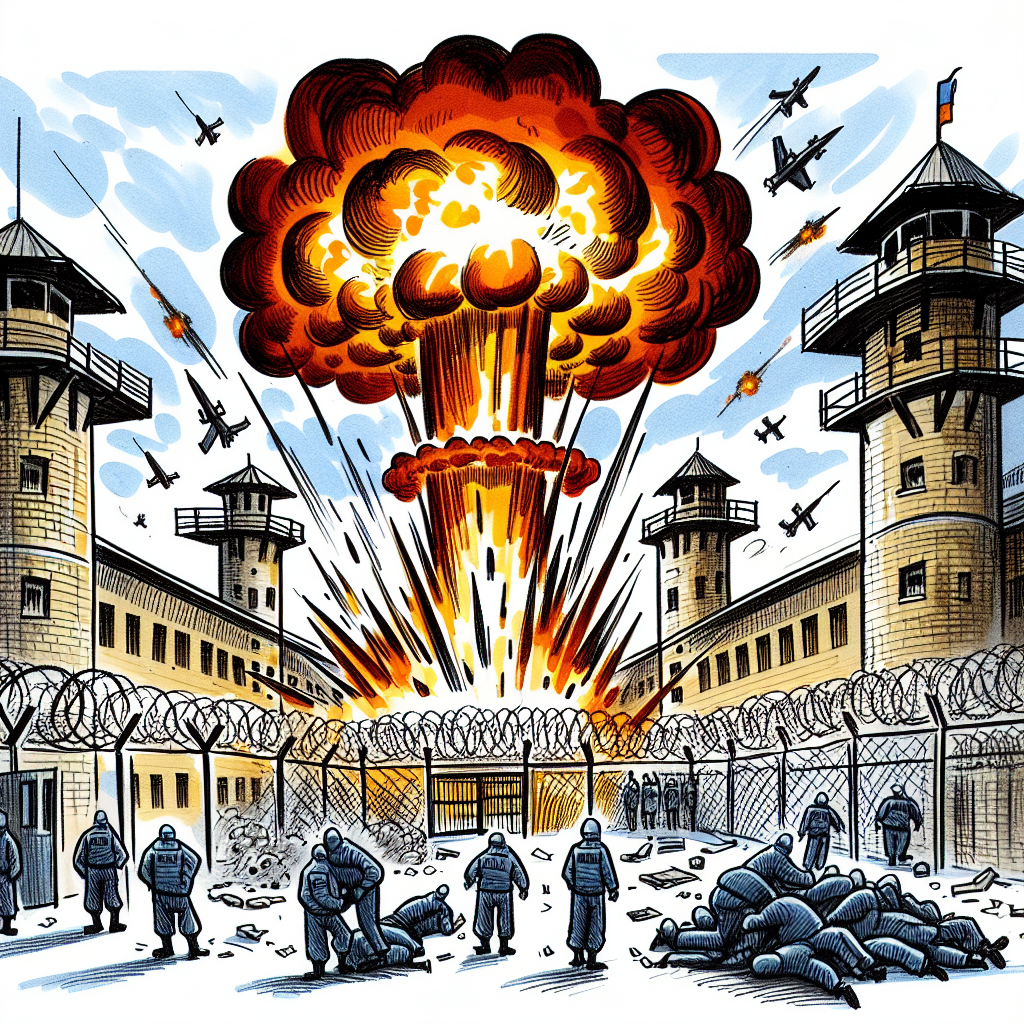The Silent Aftermath: Olenivka Prison Explosion’s Human Toll
An explosion at Olenivka prison killed over 50 Ukrainian POWs and injured many. Survivors and UN evidence point to Russia’s culpability, contradicting Russian claims blaming Ukraine. Despite international calls for justice, investigations are ongoing but face significant challenges, leaving families of the missing and dead without closure.

An explosion ripped through the Russian-controlled Olenivka prison barracks two years ago, killing more than 50 Ukrainian prisoners of war and injuring dozens.
The Associated Press interviewed survivors, investigators, and families, estimating around 120 missing still held captive. All pointed towards Russia as the culprit. The AP obtained a United Nations analysis supporting these claims, while Russia accused Ukraine of bombing its own men.
Of the 193 Ukrainians in the barracks, fewer than two dozen returned home. More than 50 died on July 29, 2022.
Here's what to know from AP's reporting: on July 27, 2022, Russian guards moved prisoners to an industrial part of the colony. The next day, they relocated their guard posts and donned bulletproof gear, unusual behavior noticed by survivors.
When the explosion hit, fire ravaged the building. Some survivors recalled guards standing by, laughing and throwing rags.
The internal UN analysis indicated that survivors were isolated to prevent them from discussing the incident, particularly with prisoners who had access to mobile phones.
Following the blast, some Ukrainian prisoners were ordered to clear debris, during which they saw camouflage-clad men planting HIMARS fragments at the site.
Russian officials and journalists soon propagated images of the destruction, showing charred bunk beds and bodies.
Despite announcing an investigation, the UN was unable to access the site, leading the mission to be disbanded in January 2023. However, the Human Rights Monitoring Mission in Ukraine independently concluded Russia's involvement based on survivor testimonies and public images.
The international investigation wanes, and Ukrainian inquiries are part of a vast number of war crime cases. Ukrainian relatives remain in pursuit of justice for their missing loved ones, amidst fading hope.
(With inputs from agencies.)










